UK writer-director Corinna Faith joined Lizzie Francke, senior production and development executive at BFI Film Fund, and Sophie Green, head of acquisitions and development at Bankside, to explore the creative and business reasons fuelling the growing popularity of genre films by female UK directors, including Faith’s The Power, Rose Glass’s Saint Maud and Prano Bailey-Bond’s Censor at a ScreenDaily Talk hosted in partnership with the Dinard Festival Of British Film on September 30.
Watch the session above.
The panel noted it’s no coincidence these films share a common narrative theme, in that they all explore social issues through the medium of horror. Faith explained that she wrote The Power — about a young nurse facing supernatural threats as she works a nightshift in mid-1970s Britain — as a response to the Jimmy Saville scandal, which was breaking at the time of writing. She described the film as “my own personal real- world horror at the nature of these stories, the idea of the massive power imbalance and all those people who were completely ignored. That felt like it had a parallel to a ghost story, these invisible people.”
BFI Film Fund boarded development of The Power at an early stage and Francke, who said she was drawn to its exploration of the abuse of power, was clear about why such stories are currently landing. “It’s about filmmakers having a spider-sense [about the zeitgeist], picking fears from the ether and giving it form. There are certain things which would be unbearable in an emotional way if they were dealt with in a straight dramatic form. In the carapace of genre, audiences can navigate these terrible situations in life.”
“There is a real appetite from the marketplace and audiences for these stories,” said Green. “From a buyer’s point of view, there’s real crossover potential when you have a genre film that is tackling something issue-based. You’re working in a more commercial space but, when you do it through a character-driven story, you can explore more personal issues.”
The panelists agreed the emergence of authentic voices were also key; that female filmmakers telling female stories were attractive to buyers and audiences, particularly in a genre that has traditionally been dominated by the male gaze. That’s also happening in France, where filmmakers such as Julia Ducournau (body horrors Raw and the Cannes Palme d’Or-winning Titane) and Lucile Hadzihalilovic (surrealist drama Earwig) are pushing against traditional cinematic boundaries to tell their own stories in their own way.
“We are living in a time where authored stories are becoming more important,” said Green. “There is a lot of questioning now about who is best placed to tell stories.”
The rise of social media also plays its part, with horror fans able to more effectively provide a groundswell of support that may help a film find a wider audience. Faith spoke of her experiences connecting with The Power’s audience after the film debuted on Shudder (who has US, UK and Australian rights; the film has also sold in mute other territories), which saw her having conversations with viewers in places like India; far removed from its distinctly British setting.
“There’s something about the genre form and the intensity of the themes,” she said of horror’s ability to touch a universal nerve. “You’re often touching on the human experience at the most extreme level and that can transcend cultural boundaries.”
Both Green and Francke were careful, however, to draw a distinction between big, commercial studio-backed horrors like Universal’s Candyman and Blumhouse’s output to the more arthouse British titles under discussion.
“Horror has two audiences,” said Francke, pointing to those die-hard fans who will seek out genre experiences, and mainstream audiences who will go to films like Candyman because of things like strong marketing, the event element or the strength of the cast or director. “We have these moments where those two audiences conflate.”
And Green had some advice for those genre filmmakers hoping to reach the widest possible audience. “It’s a very crowded marketplace,” she said. “Think about your point of difference. Horror fans have expectations, but it’s about how you can both deliver to those and subvert expectations to reach more broadly.”
Faith, who is about to start working on another genre screenplay backed by BFI Film Fund, agrees. “It’s about trying to make those tropes your own, while also delivering on them. Ultimately, it’s about maintaining your own sense of what matters in the story.”






![The Brightest SunScreen[Courtesy HKIFF]](https://d1nslcd7m2225b.cloudfront.net/Pictures/274x183/3/5/0/1448350_thebrightestsunscreencourtesyhkiff_312678.jpg)













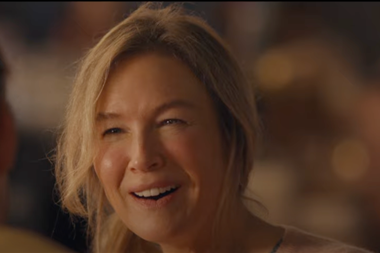
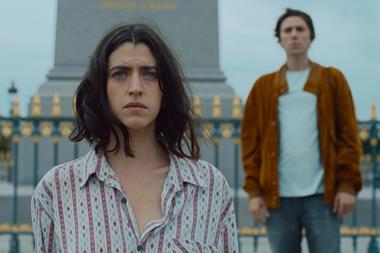

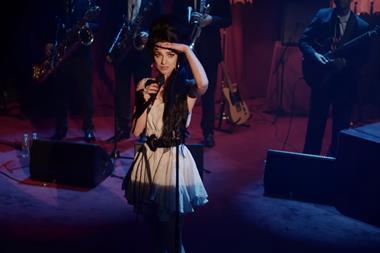

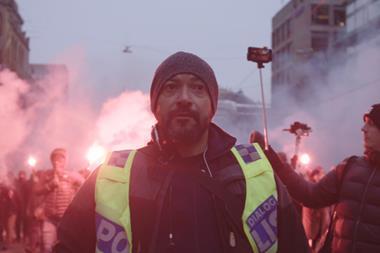
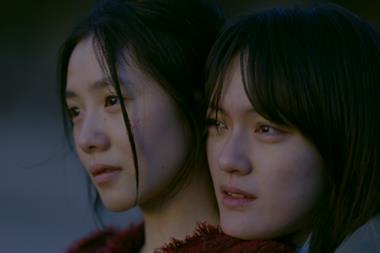








No comments yet